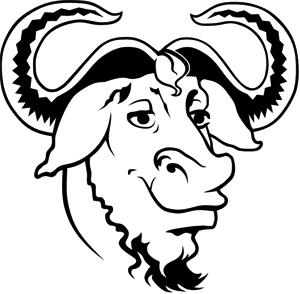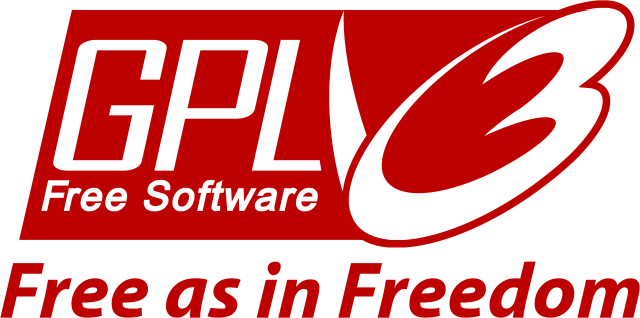Short for GNU General Public License, the GPL is a general license published by GNU project. Any software author may use the GPL to legally control the way their software may be used by others. It is a copyleft license, meaning that any code derived from GPL-licensed code must also be licensed under the GPL.
Guaranteed freedoms
Anyone who uses GPL-licensed software, and abides by the license terms, is guaranteed four fundamental freedoms as defined by the Free Software Foundation:
1.The freedom to run the program as you wish, for any purpose.
2.The freedom to study how the program works, and change it so it does your computing as you wish.
3.The freedom to redistribute copies so you can help your neighbor.
4.The freedom to distribute copies of your modified versions to others.
 |
| GNU -Logo |
Short for GNU's Not Unix, GNU (pronounced g'noo) is a free software project to provide a distributable replacement for Unix. GNU was first announced by Richard Stallman on September 27, 1983, and later published in the March 1985 issue of Dr. Dobb's Journal.
GNU's goal is to give all computer users the freedom of copying, developing, distributing, modifying, and studying software with the understanding that its redistribution cannot be limited. The goal of the project was achieved in 1992 when Linux was released under the GNU General Public License.

Comments
Post a Comment
Please do not use any spam link in the comment box